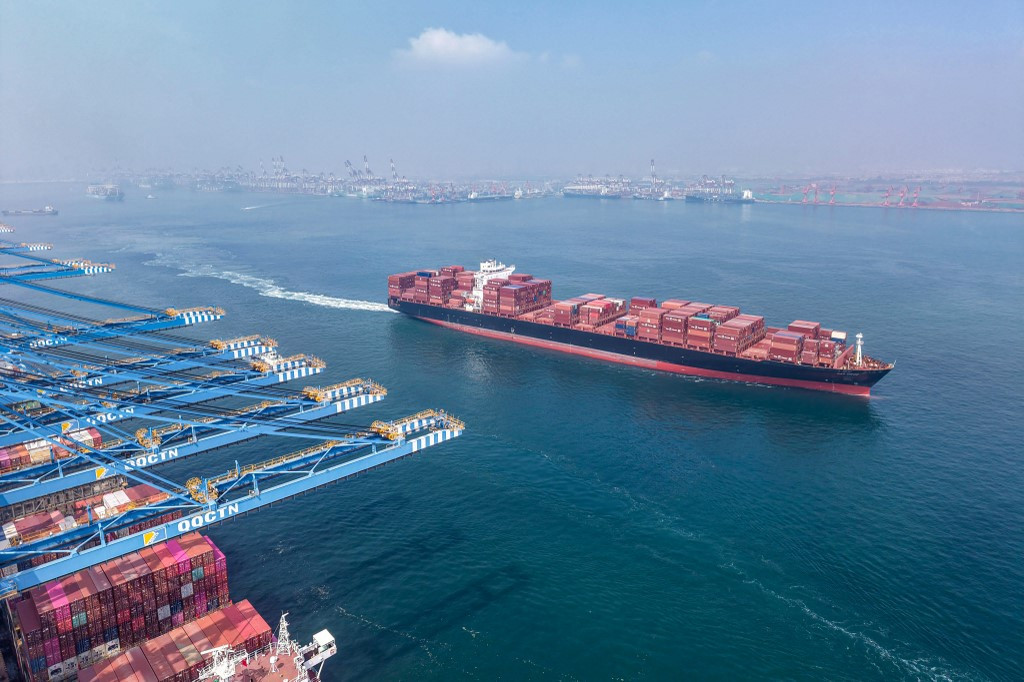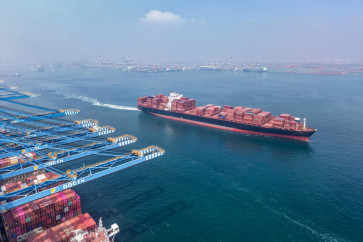Popular Reads
Top Results
Can't find what you're looking for?
View all search resultsPopular Reads
Top Results
Can't find what you're looking for?
View all search resultsWhere is the global resistance to Trump?
Trump’s frontal assault on the world economy was a shock to everyone, but it also gave Europe, China and various middle powers an opportunity to make a statement about who they are and what they stand for.
Change text size
Gift Premium Articles
to Anyone
A
merica’s critics have always depicted it as a selfish country that throws its weight around with little regard for others’ well-being. But President Donald Trump’s trade policies have been so misguided, erratic and self-defeating as to make even the most cartoonish of such descriptions seem flattering. Still, in a twisted way, his trade follies have laid bare other countries’ failures as well by forcing them to consider what their responses say about their own intentions and capabilities.
It is said that one’s true character is revealed in the face of adversity, and the same goes for countries and their political systems. Trump’s frontal assault on the world economy was a shock to everyone, but it also gave Europe, China and various middle powers an opportunity to make a statement about who they are and what they stand for.
It was an invitation to articulate a vision of a new world order that could overcome the imbalances, inequities and unsustainability of the old one, and that would not depend on the leadership – for better or worse – of a single powerful country. But few rose to the challenge.
In this respect, the European Union has perhaps been the greatest disappointment. In terms of purchasing power, it is almost as large as the United States – accounting for 14.1 percent of the world economy, compared to 14.8 percent for the US and 19.7 percent for China.
Moreover, despite the recent rise of the far right, most European countries have avoided backsliding into authoritarianism. As a collection of democratic nation-states whose geopolitical ambitions do not threaten others, Europe has both the power and the moral authority to provide global leadership. Instead, it dithered and then submitted to Trump’s demands.
Europe’s ambitions were always narrowly parochial; but in folding to Trump, it is not even clear that it served its own immediate interests. The July handshake deal between Trump and European Commission President Ursula von der Leyen leaves 50 percent tariffs on European exports of steel and aluminum, places 15 percent tariffs on most other exports and commits Europe to ridiculously high levels of energy imports from the US. Rarely has the EU’s structural weakness as a confederation of countries without a collective sense of identity been on starker display.
China has played a tougher game, retaliating forcefully with its own tariffs and restricting exports of critical minerals to the US. Trump’s vindictive, self-defeating foreign policies have helped China extend its influence and enhance its credibility as a reliable partner for the developing world. But the Chinese leadership has also failed to articulate a practical model for a post-neoliberal global economic order. Notably, China has shown little interest in addressing the two global imbalances that it has caused with its own large external surplus and excess of domestic savings over investment.



















